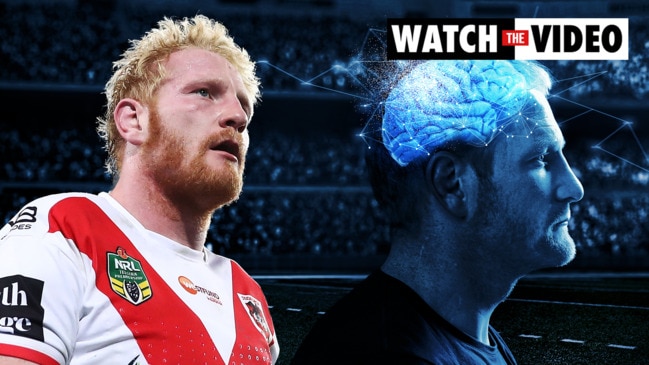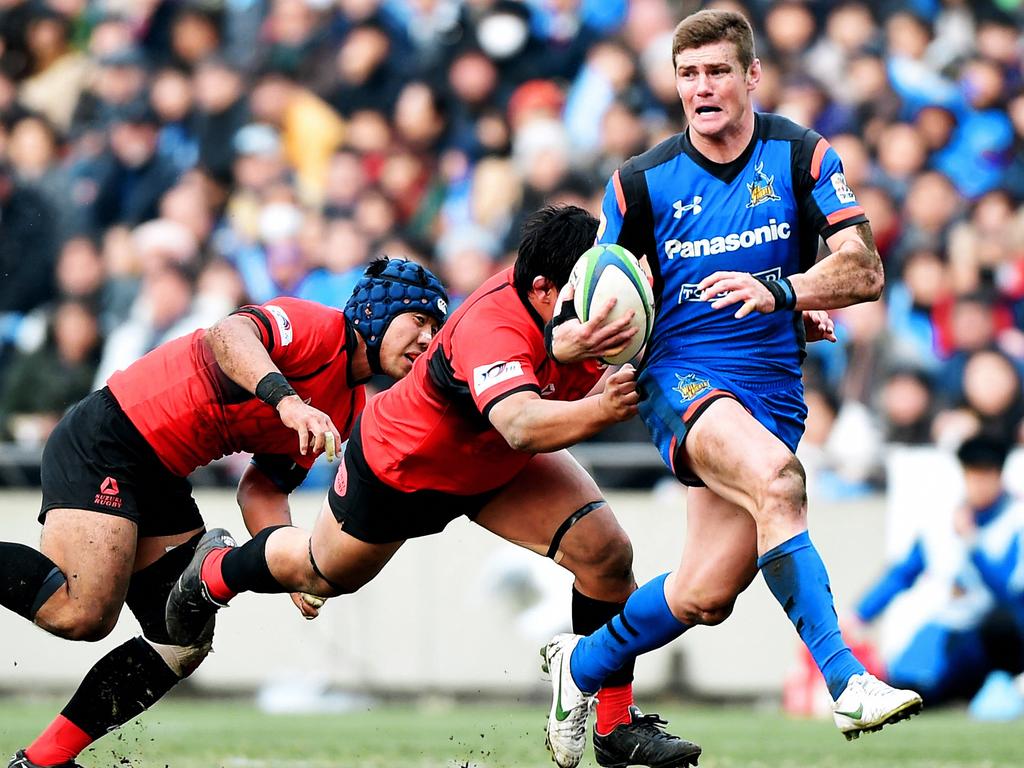Former Wallaby opens up about concussion and his return to bush footy
Former Wallaby Berrick Barnes opens up on his return to bush footy, concussion and why kids should be removed from the field for a month after a head knock.

Former Wallaby Berrick Barnes has opened up on how his love for rugby union overrode his history of concussion to see him return to play bush footy.
Barnes, who had a long career despite a string of worrying knockouts in the early 2010s while playing for Australia and the Waratahs, says the opportunity to be coach/captain for the Lennox Head Trojans recently was too hard to resist.
“I went back for the love of the game,” he tells former rugby league star James Graham for The Australian’s podcast investigation into the biggest issue of world sport, concussion.
After The Australian reached out to Barnes, who played 51 Tests, to be interviewed about the concerning concussions he suffered while playing professionally, he says he was forced to reflect on his decision to play “bush footy”.
“For those ex-players who go back and play bush footy, it’s a bit of a baptism of fire, because you’re gonna get hit (and) you’re going to cop a bunch of shit in the crowd. That’s what it’s all about, though. That’s bush footy,” Barnes tells Graham.

“And there’s a beauty to smelling deep heat again, mate, and change rooms and all that sort of stuff ... I’m not worried per se now, but I don’t know where I’m gonna be in, say, 20 years.”
Barnes tells Graham that perhaps it might have been an illogical move where his heart overruled his head. “To be honest, mate, when you guys called me a few weeks ago to do this [Head Noise podcast], it was around the time where I said I’m just done.
“And all those things came into the back of my mind again, like what am I doing? Why am I doing this? When I’ve got my kids, got my family...
“And it was because you want to give back and you want to do more for … the people in your community and help, but there’s a time where you’ve just got to say this is more important for me and my family that I am, you know, mentally all right and that for a few years to come …”
In the interview, Barnes, who retired professionally after seven seasons in Japanese rugby, reflects on league concussion protocols that see players ruled out for only a minimum of one game.
He tells Graham he believes it should be a minimum two weeks out and in junior footy a month after a concussion. World Rugby’s current protocols require players to stand down for 12 days after suffering a concussion.
“Look, if I look at my own history, I‘d say, you know, a minimum of two weeks from your first hit,” Barnes says.
“And then if you get the second one, this is professional, I’m definitely saying a month.
“And then if you get a further one, you’re probably looking at the season out.”
In today’s episode, Barnes also recounts a time when “footballer’s migraines” were a new thing and how the expert care by the Waratahs helped him through a particularly difficult time. He was managed by Sharon Flahive (now chief medical officer at the NRL) and his neurologist, John Watson, who often attended the game to keep a watch on him.

Barnes quit the game indefinitely as he struggled with ongoing concussion symptoms but later returned to represent the Wallabies and Waratahs.
“I just lost all confidence, was completely anxious about getting back out in the field again, having all these episodes of trying to drive a car and stuff like that and just wasn’t right,” Barnes says.
He also recalls wading through a swath of alternate therapies and embraced meditation after a course with teacher Tim Brown.
It helped him through one of the most difficult times of his life and prolonged his career through to 2020.
“Mate, I threw a bit of money at everything to be honest, I went to a lot Eastern medicine,” he tell Graham. “So you’ve got your physical and you got your mental and with concussions I recognise the two intertwine a fair bit.”
Barnes says he had hardly slept for a few months when he sought out a Chinese doctor in western Sydney whom his wife had found.
“He manipulated me so well with my neck and my shoulder and everything. It was the first time I slept well in months, I got a full night’s sleep. And we all know sleep aids recovery ...
“The second part of it was trying to reduce some anxiety … about getting back on the field and calming myself down.
“So I went and did a meditation course with a guy called Tim Brown there in Sydney.
“And that was huge, mate, because I’ve never done anything in relation to breathing or meditation or anything to sort of calm the whole nervous system down … So I found that was a huge, that was a really big, starting point to be able to quieten all the head noise as well.”







To join the conversation, please log in. Don't have an account? Register
Join the conversation, you are commenting as Logout